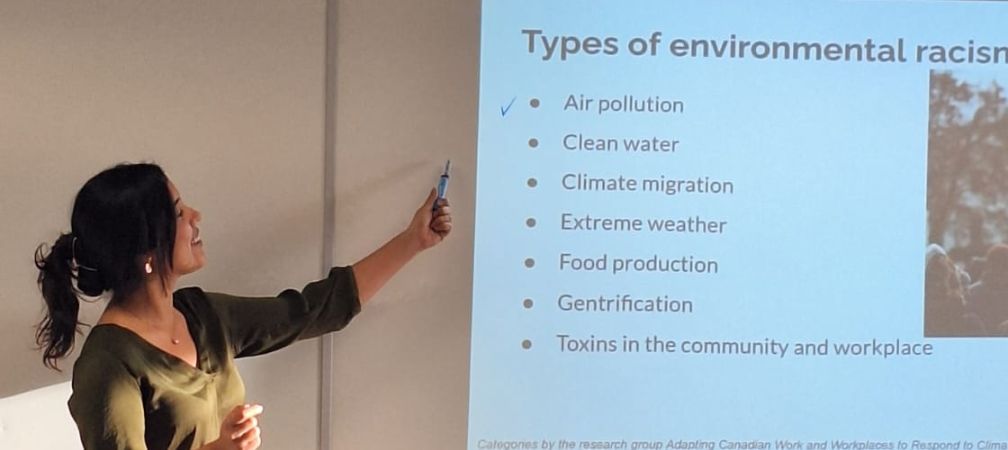Ontario Nature Blog
Receive email alerts about breaking conservation
and environmental news.
© Lora Denis
Awenda Provincial Park © Melina Damian
The housing crisis continues to be an issue of overwhelming concern for Canadians. While the people of Ontario fought hard to keep the Greenbelt protected from urban sprawl, a hot topic of debate has spun off about the impacts of immigration on the housing crisis and environmental strain. This conversation is complex and politicized, and I’d like to set the record straight by cutting through the rhetoric. This year will mark 12 years since I moved by myself to Canada from Venezuela, and I’m just one of many immigrants who have made important contributions to nature conservation in Ontario.
Regrettably, recent polling shows Canadians are significantly more likely than just a year ago to think “there is too much immigration to Canada,” with more than four in ten Canadians now agreeing with the statement. According to the Environics Institute, this is “the first time in decades” that there has been such a drastic shift in public opinion. While the same survey found most respondents still believe “immigration has a positive impact on the economy of Canada,” the proportion of Canadians that agree with this statement has declined significantly.

While many poll respondents believe newcomers are worsening the housing crisis, there has been a surge in other anti-immigration sentiments on social media claiming, for example, that immigrants contribute to Ontario’s biodiversity crisis. Comments like “the Greenbelt will always be under attack” due to immigration, or immigrants are “the greatest threat to Canada’s natural places” are increasingly common.
“When I hear that kind of argument, I hear a colonial mindset,” said Ben Rowswell, former diplomat and head of the Network for Democratic Solidarity, in an interview with Ontario Nature. “It’s not the number of people that determines whether the environment is mistreated or treated well, it’s the relationship between humans and their environment,” he added.
The housing crisis is exacerbated by many factors, such as high interest rates, increasing building costs, land speculation and investor purchasing, zoning decisions, and municipal land use planning decisions. Yet immigration is often the scapegoat for social and environmental problems. This blame game derails us from having real conversations about necessary systemic change.

Carolyn Whitzman, housing policy researcher at the University of Ottawa said in an interview with Maclean’s magazine that immigrants are among the groups that are most likely to be in core housing need. “I’m very impatient about people pointing fingers at immigrants for the housing crisis, because it has very little to do with immigration and a lot to do with government policy,” she added.
Immigrants are not a monolith, and they have varied experiences and circumstances. But, in most cases, it will take them years before they’re able to afford a home. They also don’t compete for housing in the same way investors do, for instance. Other experts agree and point out that high housing costs and low availability are in fact “a lethal combination” for newcomers.

Some economists say that blaming immigration for the housing crisis can be a convenient excuse for governments to avoid investing in social housing and other measures to improve affordability. To put this into perspective, only 4% is social housing in Canada compared to 18% in the United Kingdom and 17% in France. The Canadian Chamber of Commerce suggests that instead of cutting immigration we should be building more homes. And to achieve this, we don’t need to sacrifice environmental protection. Evidence indicates there is more than enough land available for development. Implementing the 2022 recommendations of the Ontario Housing Affordability Task Force, such as increasing housing density, is a solution to building more homes without expanding urban boundaries.
Nature lovers share an empathy and compassion toward nature and want the ecosystems that support us to be protected for future generations. This world would be a better place if we extended that same compassion and empathy towards other human beings. As an immigrant, since the first day I set foot on this country, I’ve dedicated my life to being a good steward for nature.

Gananoque Lake Nature Reserve © Smera Sukumar
While it’s fine and even necessary to point out that the relationship people have to the environment matters, it’s silly to act as the number of people within an environment have no relevance.
More people within a land occupy more space and require more resources than fewer. All other things being equal, it’d be easier to preserve and restore biodiversity if we were not trying to grow our population through immigration so dramatically (are you even aware of how fast we are growing?) none of this suggests that we shouldn’t bring in any immigrants, but just that, perhaps, we shouldn’t try to use immigration to cause massive growth – it’s an argument against mass immigration aimed for population growth. It’s an argument against ideas such as those proposed by the Century Initiative, an organization that wants to see Canada grow to 100 million people.
Thanks Randolph
Dear Melina Damian
I’m here to remind you of the marvellous job you are performing for Ontario Nature. I enjoy all your correspondence and insights and hope you continue in this endeavour many more years. I’m certain you are a massive asset to our province and country in your work and interests.
In appreciation
Randolph Murray